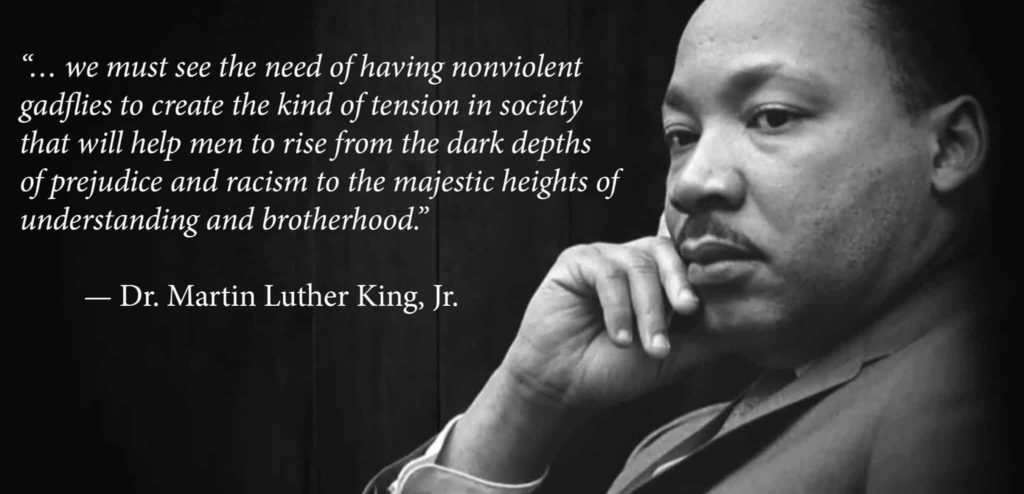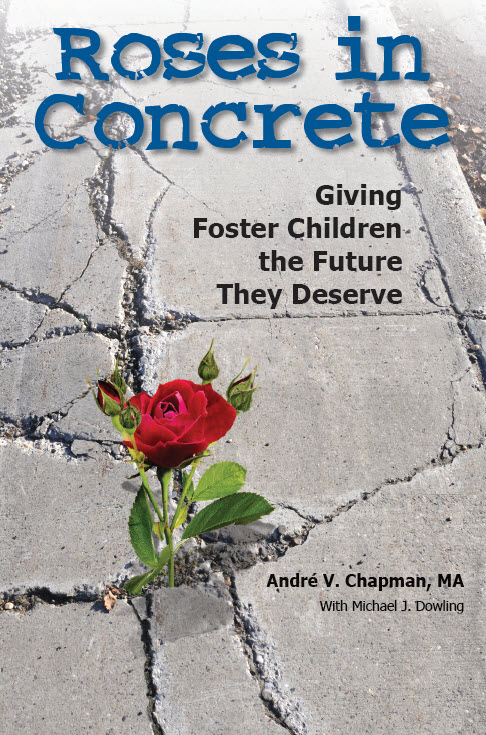Dr. Martin Luther King, Jr. would have been 91 this month. Today, more than 50 years after King was assassinated, his words — like this thought from his “Letter from a Birmingham Jail” — still ring with truth:
“… we must see the need of having nonviolent gadflies to create the kind of tension in society that will help men to rise from the dark depths of prejudice and racism to the majestic heights of understanding and brotherhood.”
Dr. King wrote those words in 1963, after he was imprisoned for protesting segregation in what he described as “the most thoroughly segregated city in the United States.”
Here in Silicon Valley, we are a long way from Alabama in the 60s, yet we still have much to do.
We live in the Mecca of technology, where the brightest minds on the globe are solving tomorrow’s technological challenges. In a small region with just over 3 million people, we’ve given birth to some of the greatest technology companies in history and produced one of the wealthiest regions on the planet. In the first quarter of 2019, more than $9.6 billion of venture capital investments poured into this region focused on changing the world. The phrase “Changing the World” is often used when describing the global impact of our region’s innovation.
However, there’s a less sexy side of Silicon Valley that isn’t trending across our Instagram and Twitter feeds: the rapidly growing economic gap between the“haves” and the “have-nots”. Homelessness, poverty, classism, and racism are alive and thriving in our own backyard, and if we don’t mobilize as a community, we — yes, Silicon Valley we — may wake up one day and find ourselves amid tragedy!
According to recent research by Joint Venture Silicon Valley and other organizations, the quality of life data for many of our neighbors — especially non-White residents — is alarming. Here in our own community:
- Homelessness increased by almost one-third from 2017 to 2019, and a disproportionate number of individuals experiencing homelessness are of African Ancestry or Latino. African Ancestry residents were 19% of the homeless population, but only 2.6% of the general population, while Latinos were 26% of the overall population but 43% of the homeless population.
- Poverty among Latino and African Ancestry residents is more than two times higher than among White residents; more than 57 percent of Latino households do not meet the self-sufficiency standard.
- Fifteen percent of African Ancestry students and 24% of Latino students drop out of high school, compared to less than 10% of White students.
- The unemployment rate for African Ancestry residents is double that for White residents.
- Per-capita income for people of African Ancestry declined from 2015 to 2017.
For many of us, these harsh facts seem far removed from our daily lives, and it’s difficult for us to truly connect with the pain and trauma of these communities. But many of our brothers and sisters must face painful reminders every day that if you’re an adolescent male of African Ancestry or Latino, you are public enemy #1, and too often when a crime has been committed people will say you “fit the description”.
We all want the best for our children — the best neighborhoods, the best schools, and the best opportunities to develop and grow into successful young adults — however, that will never happen if we as adults are not willing to have honest dialog about our barriers.
As the civil rights leader Fannie Lou Hamer so eloquently stated:
“All my life I’ve been sick and tired. Now I’m sick and tired of being sick and tired.”
It’s time for a radical paradigm shift in the dialog to a “WE” society rather than an “I” society. Let us not become entangled in the political banter and rhetoric that permeates our airways, but let’s take back the dialog and begin a change in creating equality and fairness for every child regardless of the color of their skin. Let’s not allow tragedy after senseless tragedy — like the deaths of Michael Brown and so many other men of African Ancestry — to occur, constantly reminding us of our country’s past and present indiscretions.
In his book “Community,” Peter Block writes:
“Community Restoration is created by the kinds of conversations and dialog WE initiate with each other. These conversations are the leverage points for an alternative future. The core question that underlies each conversation is “what can WE create together?”
Let us be the nonviolent gadflies Dr. King invoked. Lend your voice, lend your passion and lend your innovation to truly changing the world by collectively confronting our social inequalities with the same voracity used to create the best technological companies on the planet.
Today, as we celebrate the life and legacy of Dr. Martin Luther King, Jr., commit to being part of the change. Join us at the table for a true dialog to create a WE society!!


